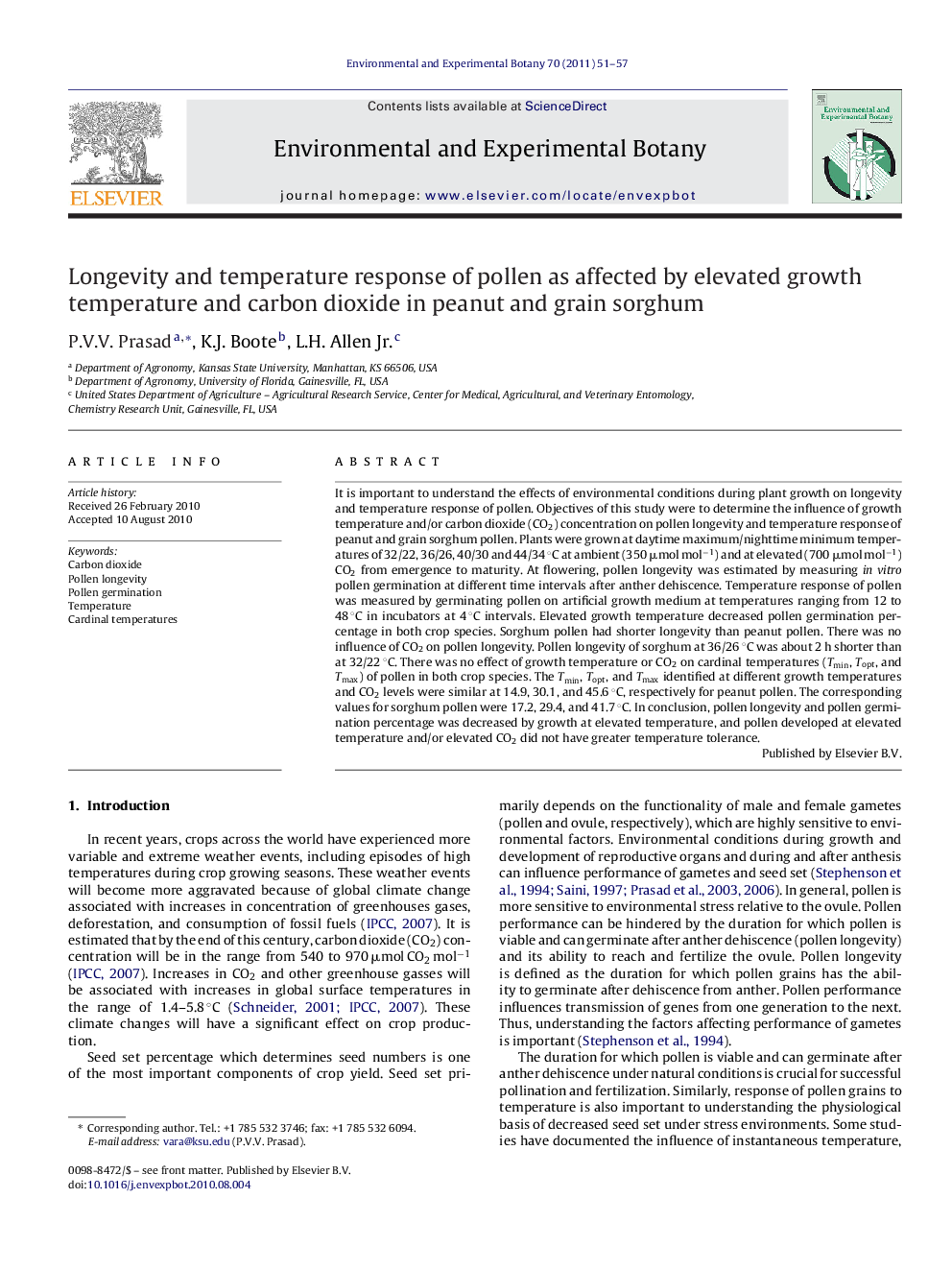| کد مقاله | کد نشریه | سال انتشار | مقاله انگلیسی | نسخه تمام متن |
|---|---|---|---|---|
| 4554989 | 1329238 | 2011 | 7 صفحه PDF | دانلود رایگان |

It is important to understand the effects of environmental conditions during plant growth on longevity and temperature response of pollen. Objectives of this study were to determine the influence of growth temperature and/or carbon dioxide (CO2) concentration on pollen longevity and temperature response of peanut and grain sorghum pollen. Plants were grown at daytime maximum/nighttime minimum temperatures of 32/22, 36/26, 40/30 and 44/34 °C at ambient (350 μmol mol−1) and at elevated (700 μmol mol−1) CO2 from emergence to maturity. At flowering, pollen longevity was estimated by measuring in vitro pollen germination at different time intervals after anther dehiscence. Temperature response of pollen was measured by germinating pollen on artificial growth medium at temperatures ranging from 12 to 48 °C in incubators at 4 °C intervals. Elevated growth temperature decreased pollen germination percentage in both crop species. Sorghum pollen had shorter longevity than peanut pollen. There was no influence of CO2 on pollen longevity. Pollen longevity of sorghum at 36/26 °C was about 2 h shorter than at 32/22 °C. There was no effect of growth temperature or CO2 on cardinal temperatures (Tmin, Topt, and Tmax) of pollen in both crop species. The Tmin, Topt, and Tmax identified at different growth temperatures and CO2 levels were similar at 14.9, 30.1, and 45.6 °C, respectively for peanut pollen. The corresponding values for sorghum pollen were 17.2, 29.4, and 41.7 °C. In conclusion, pollen longevity and pollen germination percentage was decreased by growth at elevated temperature, and pollen developed at elevated temperature and/or elevated CO2 did not have greater temperature tolerance.
Research highlights▶ Elevated temperature decreased pollen germination and pollen longevity. ▶ There was no influence of elevated carbon dioxide (CO2) on pollen longevity. ▶ Sorghum pollen had shorter longevity than peanut pollen. ▶ Pollen developed at elevated elevated CO2 did not have greater temperature tolerance. ▶ Cardinal temperatures of pollen grains were not affected by temperature or CO2.
Journal: Environmental and Experimental Botany - Volume 70, Issue 1, January 2011, Pages 51–57